 Your new post is loading...
 Your new post is loading...
I’ve written before about the dangers of uttering “quotes of denial,” in which the word “not” is placed immediately before a negative noun or adjective. The problem is that the defensive-sounding negative word or phrase tends to linger longer in the public memory than the word “not.”
So when Chris Christie uttered the phrase “I am not a bully” during his marathon press conference on Thursday, I knew it would be used against him. Sure enough, here’s the cover from this weekend’s USA Today Weekend...
Most of us have suffered from a brain freeze. So what should you do if you’re caught in an interview, debate, or speech, and you forget what you were saying?
Drawing a blank during a debate for an excruciatingly painful 47 seconds. Although that moment became rather infamous (I rated it the worst gaffe of Election 2012), Mr. Perry is far from alone. Arizona governor Jan Brewer suffered a similar fate during a gubernatorial debate in 2010, when she went blank for 13 seconds. It was even worse for Jeanine Pirro, a candidate who briefly ran for Hillary Clinton’s New York Senate seat in 2005 but who quickly withdrew after misplacing a page of her announcement speech and going silent for 32 seconds. The truth is that most of us have suffered a similar—if less high profile—brain freeze. So what should you do if you’re caught in an interview, debate, or speech, and you lose your place?...
Bob Newhart is one of my favorite comedians, so I was excited to come across this clip from his old show Newhart, on which he played a local television host and innkeeper.
In this clip from 1984, Newhart’s character, Dick Loudon, interviews retired Air Force Colonel Lloyd Menenger about his book, Up The Amazon. The problem? He didn’t read his guest’s book prior to the interview.
When most people think of ambush interviews, they think of a television interviewer chasing after a scandal-tarred executive with camera and microphone in tow.
Those types of ambushes do occur occasionally, but they’re rare. More typically, an ambush occurs in one of two ways: - When a reporter shows up without notice.
- When a reporter deviates from the agreed-upon topic to blindside a source with something totally unexpected.
In both cases, the reporter is after one thing: a great visual that makes you look guilty. If you respond with defensiveness, anger, or shock, the news outlet will run the tape of your bad reaction repeatedly, perhaps for days. You win an ambush by denying the reporter a great visual. If you’re ever ambushed, remember the advice offered in that old deodorant ad: never let ‘em see you sweat. By remaining calm, you prevent reporters from getting the compelling “money shot” they desire.
FishBowl DC has a post out today showing (in a huge surprise to absolutely no one) that even respected national reporters can't agree on what "off-the-record" means.
Toby Harden, the bureau chief of London's Sunday Times, opines that he could "use the information but not attribute it to anyone by name or affiliation or quote it directly." (To many people -- that would be known as "deep background" not off-the-record.)
Susan Page, the Washington Bureau Chief, USA Today, comes closer to the appropriate definition (in our view) saying to her: "...'off the record’ means you can’t use the information in a story and you can’t use the information in reporting...
Defensiveness—in the form of closed gestures, a tight smile, or abruptly clipped answers—leads the audience to wonder what you’re hiding.In order to help our trainees, I encourage them to change their interior monologues before they begin their second round of practice interviews. Instead of, “Oh, no, here come the tough questions,” I ask them to try, “I’m so happy you asked me that, because your question gives me an opportunity to discuss that issue.”
You’d be amazed by how much that small mental adjustment helps them convey a more open tone. That openness not only helps to persuade the audience but also defangs most interviewers, who are less inclined to probe a spokesperson who appears to have little to hide. Beyond the fear of the unexpected question, defensiveness comes across in at least three other ways....
From corporations to one-person shops, almost any business benefits from media publicity. Whether the story is pitched with the Vocus PR suite or with HARO, we see the incredible results of successful media pitching every day.
Winning that major piece of coverage all hangs on your pitch: a phone call, email, tweet, mailer, or some combination of all four, that convinces a journalist to share your story with the world. You could play it straight or get creative with a personal video as, in these essential pitching tips.
We’ve put together a list of 103 pitching tips – probably our biggest list ever – starting with tips from yesterday’s UnPitching webinar with Scott Stratten that will help you persuade a reporter to share your next piece of news....
You've probably heard the statistic that words only account for 7% of how the audience perceives you. The problem? It's completely wrong.In dozens of books and hundreds of articles, you’ll find media trainers, presentation coaches, and communications experts offering a startling statistic: Only 7 percent of the way someone forms an impression of you comes from your words! The remaining portion comes from your voice (38 percent) and your body language (55 percent)!
There’s only one problem: Those statistics are wrong. Completely wrong....
It’s easy to find an example of a spokesperson getting a press conference all wrong. It’s less common—and worth noting—when someone gets it exactly right....One such example occurred after Saturday’s plane crash in San Francisco. Deborah Hersman, the head of the National Transportation Safety Board (NTSB), faced cameras shortly after the accident to discuss how her agency would handle its investigation.
During the first half of her short briefing, Ms. Hersman delivered the information reporters needed to file their stories; during the second half, she took three questions.Watch this video. It offers spokespersons everywhere a wonderful example of the right way to run a press conference during a crisis....
In one of its final reports before being pulled off the air, NBCs Rock Center committed a sin in an interview with a Rabbi.
...For us -- the larger teaching point here is no matter the explanation -- you should always protect yourself if you are going into an interview that could in any way be controversial or contentious. We teach our clients that it is kosher to tell the media that they too will be making audio -- or preferably video recordings of every interview.
Armed with that kind of backup -- if you are taken out of context or misrepresented -- you can, as Rabbi Berkowitz did -- correct the record.
In Washington-speak, a "full Ginsburg" is when one person appears on all five major Sunday news programs in a single day. The feat was first performed in 1998 by William Ginsburg , the attorney for Monica Lewinsky. Since then, the trick has been performed about 18 times -- often by Presidential candidates.
If you are not running for office --and you are doing a Ginsburg, chances are you are running for your life. Even if one or two of the interviews is pre-taped, it is hard on a person to keep their energy up and their talking points down.
White House Communications Director Dan Pfeiffer logged a full Ginsburg this morning. We'll leave to others to rate the substance of his answers -- but the way they were delivered was not impressive....
People will forget much of what you say during an interview. So be careful not to do these three things - or your audiences might remember even less. ...The “U” in CUBE A demands that your messages remain unburdened by three things: wordiness, jargon, and abstractions. The more a message tries to say—and the more abstractly it tries to say it—the less likely it is to be memorable. As a general guide, aim for messages that: have no more than two commas; contain no more than 30 words; and evoke concrete images....
Many journalists are willing to share the basics about the stories they’re working on, and any insight they offer will help you better prepare. I mentioned that you shouldn’t conduct an interview the moment reporters call. Instead, I advised that you should offer to return their calls promptly, and for you to take at least a few minutes to prepare for the interview before you speak. But before you hang up from that initial phone call, take a few minutes to “interview” the reporter. Many journalists are willing to share the basics about the stories they’re working on, and any insight they offer will help you better prepare....
|
What’s the best way to get people—an audience, your staff, a teenager—to do what you want them to do? If you’re like a lot of companies, leaders, or parents, you create a set of rules and policies.
Do not give customers a free upgrade without supervisor approval. Get your reports in by the 15th of each month. Don’t stay out past midnight. But those of us who have issued sets of rules know that lack of compliance is a big problem. Many people don’t like rules, so they ignore them. They lapse back into old habits. Staff members wait until the end of the month to submit their reports. Your teenager stays out until 2 a.m. In many cases, there’s a better way to get people to do what you want them to do....
Spokespersons who change their messages from interview to interview prevent their audiences from understanding, remembering, and acting upon their messages.
...Just how many times do you have to repeat your messages in order to achieve your goals? Advertisers rely on the concept of effective frequency to determine the number of times they should run an advertisement. Commercials for simple products with high name recognition might need to be seen only twice to result in a sales increase, whereas ads for less familiar brands might need to be seen nine times.
In the age of media and message oversaturation, those numbers strike me as low. I advise my clients that moving their audiences from unawareness to action requires anywhere from 7 to 15 exposures—and sometimes more....
When you see someone like Oprah or Anderson Cooper on television, it's easy to think that they're naturally talented speakers and interviewers. After all, the ease with which they interact with their guests, and share ideas on stage, is rare. But what if it's not all talent? What if the real secret to being that comfortable comes down to learning the right techniques and practicing them over and over?
Emmy nominated TV producer Rachel Hanfling has worked with some of the biggest names in television. She has spent 20 years finding and nurturing guests, from survivors of domestic violence to power players like former Secretary of State Hillary Clinton, Julia Roberts, Vera Wang and Ryan Seacrest. And in that 20 years, she's learned that it's never just talent that makes you a great guest. There's a formula.
When one school superintendent was confronted with a challenging situation, she employed a unique approach to handling the news media....
According to the FOX anchor, Ms. Sabolinski didn’t want to show her face because “the story wasn’t about her.” But that’s the case for corporate and organizational leaders much of the time, and they’re still expected to act as spokespersons for incidents that occur under their watch.
Plus, as the school superintendent, this story was partially about her, insofar as she’s the person who’s expected to handle the situation responsibly while keeping parents informed about her actions. Her job in a crisis is to convey a sense of confidence and competence—and hiding her face didn’t help her send that message successfully....
This was an offensive and inappropriate tweet. But was shaming this student on the front-page of a college newspaper over the top?
I’ve done hundreds of radio interviews throughout my career. They seem simple. After all, you just pick up a phone or visit a studio and have a conversation with the host.
But radio interviews are nothing like normal conversations (unless your friends take listener phone calls and toss to a commercial break every few minutes!). Remember these seven rules for your next radio interview...
When this book author went on the Fox News Channel, he encountered a biased anchor. He handled it so well, his book soared to #1 on Amazon's bestseller list.
I’ve seen a lot of biased, ill-informed, and journalistically lazy interviews through the years, and this one was one of the worst. But the author who was the target of the anchor’s ire stood up to her questions well—and, in part due to his deft handling of that interview, currently has Amazon’s top-selling book.
Writer Reza Aslan—a prolific author who holds a Ph.D. in the sociology of religion—appeared on the Fox News Channel to discuss his new book, Zealot: The Life and Times of Jesus of Nazareth. Fox News anchor Lauren Green went into the interview clearly skeptical of the book—less for its content, about which she was clearly unfamiliar—but because Aslan is Muslim. And a Muslim writing about Jesus was just too much for her to take....
In his brilliant pitch for Kodak's slide machine, Mad Men's Don Draper teaches you an important lesson about how to speak about your product, cause or idea.
After one of its planes crash landed into San Francisco, Asiana Airlines issued a press release that didn't even acknowledge the victims.
Paul LePage, the controversial Republican governor of Maine, has a long history of contentious relations with the press. But the negative coverage his top environmental regulator received in a few local newspapers recently sent him over the edge.
According to the Portland Press Herald, LePage announced through a spokesperson on Tuesday that his administration “will no longer comment on stories published by the Portland Press Herald, the Kennebec Journal and the Morning Sentinel.”
In other words, he’s blacklisting three of his state’s newspapers. He may think he’s punishing them. But he’s the one who’s likely to pay the price....
The owners of the new pizza place in my neighborhood could use a little media training. I say this a bit tongue in cheek… After all, they’re a brand new small business and will likely have little to no interaction with the media. However, their messaging and communications skills could certainly benefit from some help. So please allow me, pizza place around the corner, to give you and our readers a few pointers gratis. Here's why....
Some radio stations don't want to conduct interviews by telephone anymore. Instead, they may ask you to record it yourself using your smartphone.
|



 Your new post is loading...
Your new post is loading...

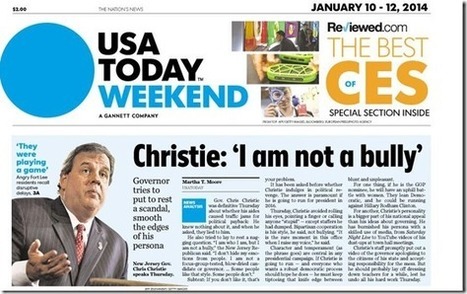


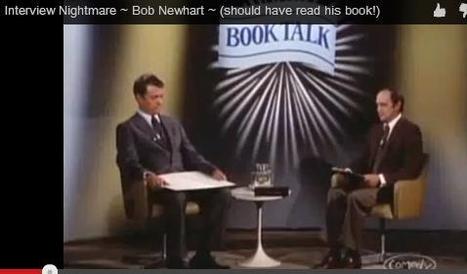





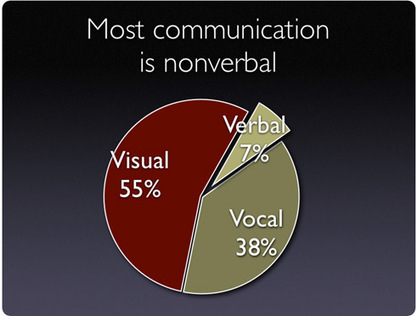


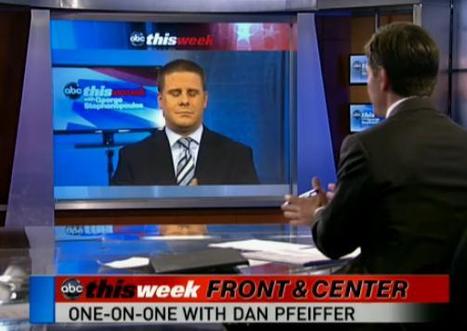







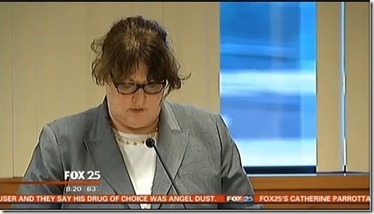





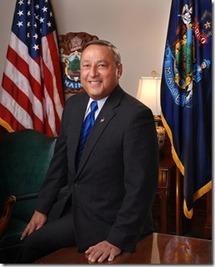








Brad Phillips offers valuable tips on avoiding the language of denial in a crisis and in media interviews.